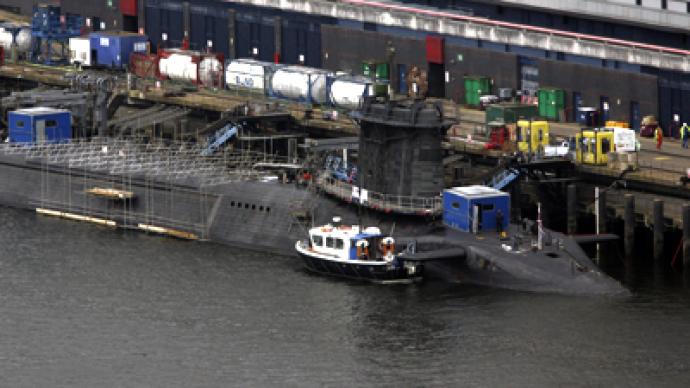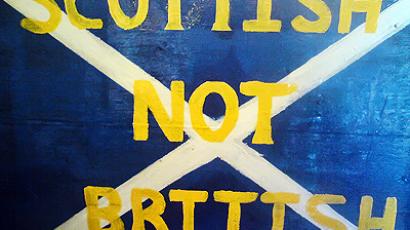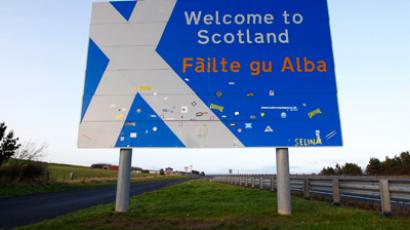Scottish independence could end UK's nuclear deterrent

A unilateral nuclear disarmament could be forced on Britain if Scotland becomes independent in 2014, a government report says. Along with Scotland, the UK would lose the only naval base capable of hosting Trident nuclear-carrying submarines.
In the new report, the Commons Scottish Affairs Committee warned that Edinburgh’s desire to remove Trident submarines from its shores could result in forced nuclear disarmament for the rest of the UK.
If dismantled, the Continuous at Sea Deterrent, which has at least one submarine constantly patrolling the UK’s shores, would cease to exist.
“Trident can be deactivated within a matter of days, and the warheads removed within 24 months. In the process, the UK would lose the ability to operate its nuclear deterrent, and effectively be forced into unilateral disarmament for an indeterminate period,” Committee chairman Ian Davidson said.
The committee stipulated that if Scotland removes the nuclear weapons, the construction of the necessary facilities in other parts of the UK could take 20 years.
One of the options still on the table is for Scotland to agree to lease the facilities to London and for the UK to operate the Trident submarines, something the Scottish National Party strongly opposes.
“A separate Scotland would be presented with a choice over Trident. It could honor the long-standing commitment of the SNP that there should be no nuclear weapons in Scotland and insist on the ‘speediest safe transition’ of Trident from Scotland,” Davidson says.
Finding other facilities in the UK is difficult as most are located in heavily populated areas where storing nuclear warheads is dangerous. Most areas are too shallow for the submarines to dock.
Scottish First Minister Alex Salmond said earlier that if London was not willing to build a new Trident base within the UK, it had only a few options left: either scrap the entire weapons system or move the missiles to a French or American base.
"They could decide on what would be a much better policy, which would be to decommission the weapons system,” Salmond told the BBC.
The Commons Scottish Affairs Committee suggests that both London and Edinburgh publish contingency plans ahead of the vote for removing the atomic fleet from Scotland’s shores, so that electorates can make an informed choice.
If the base stays, almost eight thousand people will remain employed at Faslane Naval Station, which houses the submarines, making it the country’s largest worksite.
Removing the submarines and placing them south of the border will cost an estimated £3.5 billion, an expense which is to be divided between taxpayers in Scotland and the rest of the UK.
In a statement following the report’s release, Philip Hammond, the UK defense secretary, said: “Our continuous submarine-based nuclear deterrent is the ultimate safeguard of our national security. We have made a clear commitment to maintain that deterrent and there is absolutely no question that the UK will unilaterally disarm. We are confident that the Scottish people will choose to remain part of the United Kingdom,” the Financial Times quotes him as saying.














